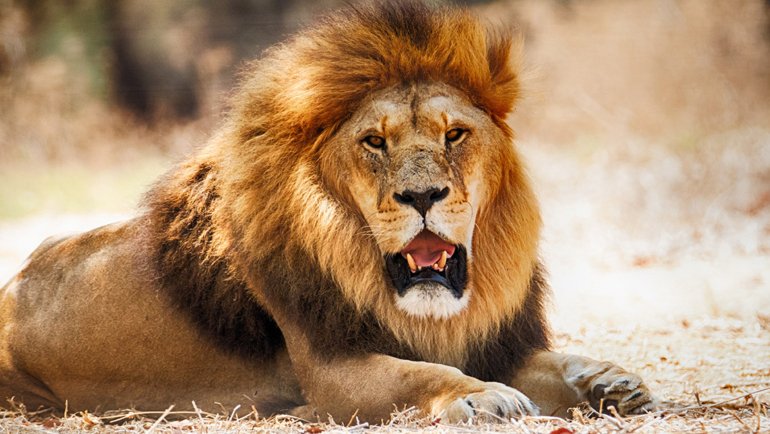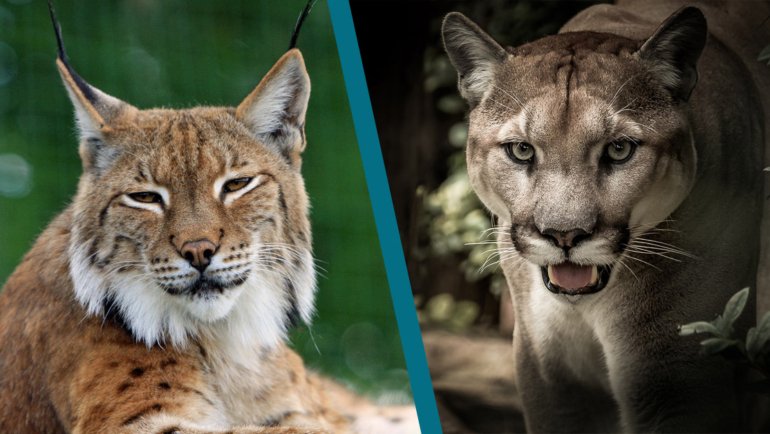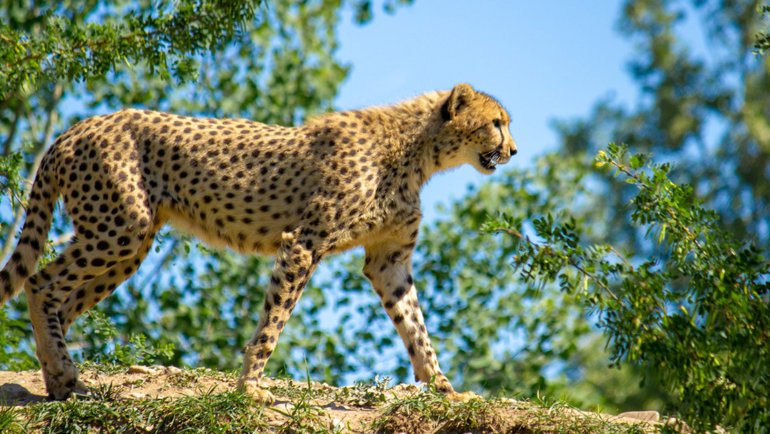Raccoons are known for their curious and opportunistic nature. It explains why some of them occasionally approach various small animals like cats to evaluate if they’re potential food resources.
Although most domesticated cats are more tolerant or even friendly towards other species (or have a laid-back personality), especially if they have been raised around other animals, a close encounter with a raccoon sometimes leads to conflicts if the feline feels threatened.
Since the versatile relationship between these two mammals often confuses many people, this article will provide all readers with valuable information to address all queries related to these two species, such as whether raccoons kill and eat cats.
Do Raccoons Attack Cats?
Although raccoons are generally not aggressive towards cats, they may attack these domesticated felines if they feel the cats pose a significant threat.
A major factor that frequently contributes to raccoons attacking cats is competition for resources such as food and shelter. Another factor may be territorial aggression. Raccoons and cats are territorial animals; hence both may become aggressive toward each other if one species invades the other’s territory.
Can a Raccoon Kill a Cat?
While raccoons typically avoid confrontations with cats and other predators, they may attack and kill cats if they feel threatened or if they are competing for resources.
An adult raccoon is significantly larger and stronger than a cat; hence, it has a higher chance of killing a cat when the two fight.
Also read: 6 Reasons Why Raccoons Fight With Each Other
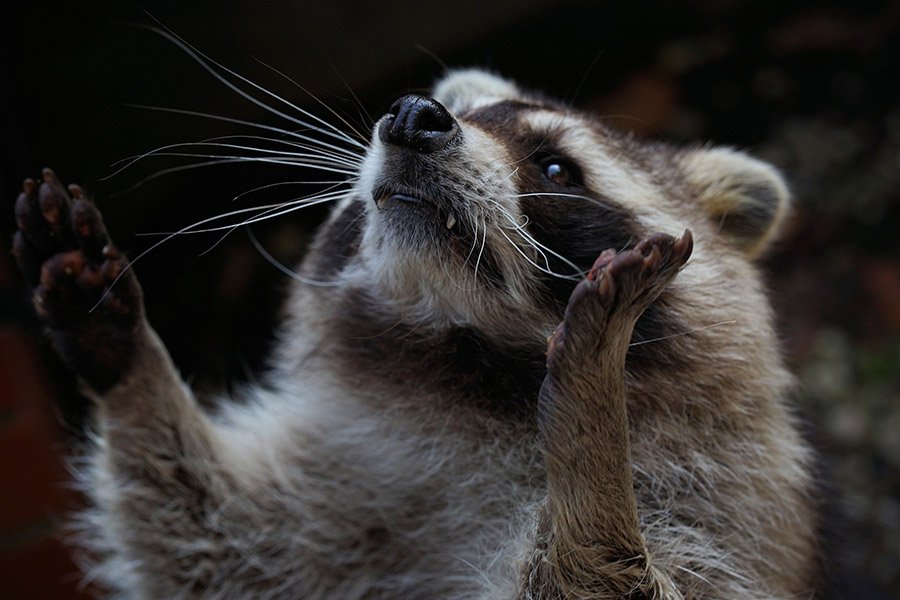
Do Raccoons Eat Cats Or Kittens?
Raccoons are primarily omnivorous; hence it’s possible and also common for them to eat weak cats and kittens if they are hungry and cannot find other food sources.
However, such instances are relatively rare and are more likely to occur in urban areas where raccoons have become habituated to human environments and have learned to scavenge for food.
Raccoon Bite Marks On Cat: What Does It Look Like?
Raccoon bites are often characterized by two puncture marks spaced a few centimeters apart. If a raccoon has bitten your cat, the wound may appear as a small puncture or a larger, more open wound. It can also be red, swollen, or inflamed, with signs of bleeding or discharge.
Since they are known to be carriers of various diseases, including rabies, distemper, and roundworm, which can be transmitted to other animals, including cats, it’s vital to seek veterinary services if you suspect a raccoon has bitten your cat.
Your veterinarian will be able to assess the wound and provide appropriate treatment, which may include cleaning the wound, administering antibiotics or other medications, and monitoring your cat’s health for signs of infection.
Are Raccoons Scared of Cats?
Raccoons are generally not afraid of cats, but their interaction can vary depending on the situation. For instance, raccoons may be scared of cats for these two reasons.
Firstly, cats are natural predators, also known for their agility and quick reflexes when threatened, which can be intimidating to inferior (young or weak) raccoons.
It’s also possible that a raccoon may have had a negative experience with cats in the past, which will typically make it associate cats with danger. For example, a raccoon may have been attacked by a cat or witnessed another raccoon being attacked, which could cause them to fear cats.
Also read: Raccoon Lifespan: What is The Life Expectancy of a Raccoon?
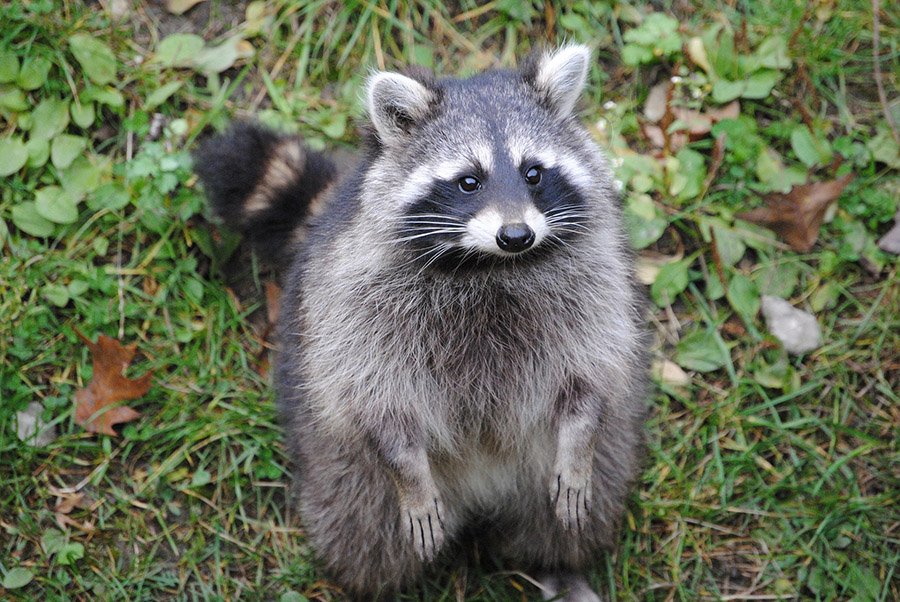
Do Cats Keep Raccoons Away?
While cats can be territorial and may try to chase away other animals from their territory, they are generally not an effective deterrent against raccoons. Raccoons are generally larger and more aggressive than cats; hence they can defend themselves against the small felines.
Therefore, if you are looking for ways to keep them away, it’s best to take measures such as securing your garbage cans, removing any potential food sources, and sealing off any potential entry points to your home or property.
However, it’s essential to note that raccoons are naturally cautious animals, so they always try to avoid potential threats to reduce their risk of injury or death.
Frequently Asked Questions
Do Raccoons Eat Cat Food?
Yes, raccoons are known to eat cat food. They are opportunistic feeders, meaning they’ll eat almost anything they can get their paws on, including pet food left outside.
Do Raccoons Attack and Kill Dogs?
A raccoon is typically smaller and less strong than the Canidae; hence, it cannot attack and kill a mature dog. Generally, most adult dogs are able to scare off raccoons with their barking and presence alone.
Although a raccoon may show signs of aggression, such as hissing, growling, or baring its teeth when it feels cornered/threatened by a dog, it will always try its best to avoid a confrontation by fleeing for safety.
How Aggressive Are Raccoons?
Raccoons are typically not aggressive animals and usually avoid confrontations with humans or other animals if they can. However, they may become aggressive if they feel threatened, cornered or when protecting their offspring.
Final Thoughts
Although rare cases exist where raccoons and cats coexist peacefully in the same area and even share resources such as food and water, these two species are often/naturally aggressive towards each other.
It’s also vital to note that wild raccoons can carry diseases such as rabies and leptospirosis, which can be transmitted to cats if they come into contact with an infected animal. Even their poop can be dangerous, both for you and your pets.
Therefore, it’s essential to keep your cat’s vaccinations up to date and prevent them from interacting with wild animals, including raccoons.

